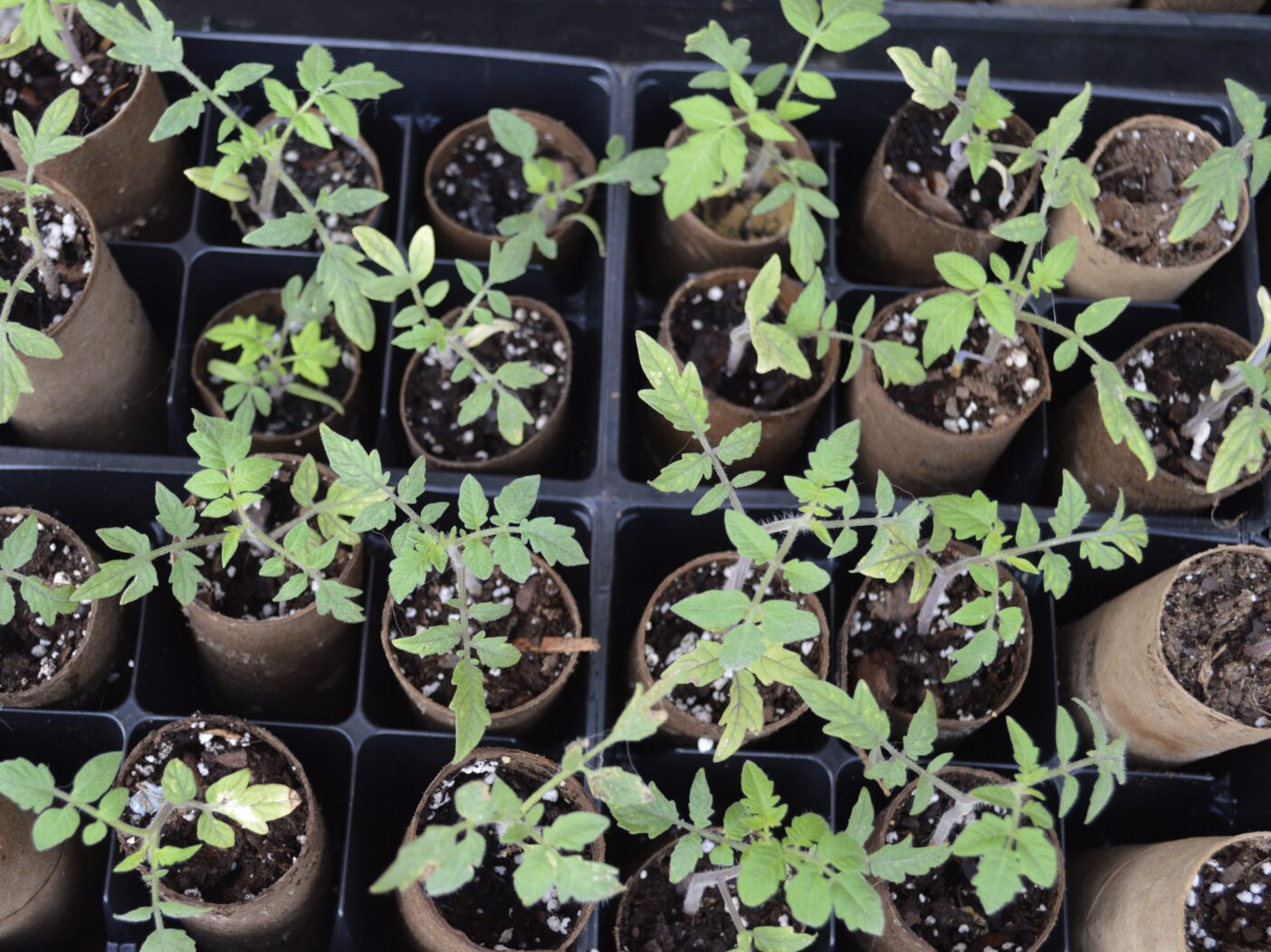
Our team reported to Bonita Springs Elementary School Thursday morning, their cars loaded with seedlings—tomatoes, eggplants, okra, mustard and kale, a little over 500 in all—to offer families who’d arrive by car and by foot throughout the morning.
The Lee County School District’s Environmental Education Department had convened a couple of community partners, Naples Botanical Garden among them, to celebrate Earth Day with Project Victory Gardens, a weeklong giveaway of fresh produce and of seedlings like the ones our staff grew. The environmental educators and community partners distributed the produce and plants at selected schools throughout Lee County where families pick up free school meals.
The produce was harvested from the district’s school gardens, including those we advise through our Collier Greens school and community garden program. The seedlings came from a variety of sources — plants that teachers rescued from now-closed school gardens, tomatoes we’d started for school field trips that never materialized, and vegetables that our staff started specifically for the giveaway.
“We want them to understand where their food comes from, to understand the science behind it, and then try (eating) what they grew,” says Susie Hassett, the Environmental Education Resource Teacher, referring to the district’s 35-plus school gardens. Project Victory Gardens transfers those lessons and experiences to students’ homes.
Her current-day initiative harkens back to the World War I and World War II push for Americans to grow home and community gardens as the government procured commercial crops for the troops. During the second war, victory gardens accounted for 40 percent of the produce in the United States, according to the Smithsonian Institution. In recent months, interest in home gardening has surged as consumers suddenly have time to grow their own — and fears about empty grocery shelves and supply-chain disruptions.
“This helps people reconnect with their traditions, their history. It encourages people to be self-sufficient and to share with their community what they grow,” says Kaitlyn Dillard, our Education Programs Manager, who heads Collier Greens. “Food brings people together. So do food plants.”
Assisting her were Education Program Assistants Em Kless and Patrick Deja.
“It was fun. I liked planting the seeds and watching them grow,” Patrick says. He tended some 150 plants at his home.

“I think this is amazing — kids will get to see where their food comes from. They can have science lessons with their food. They get to have fresh produce. Something as small as that can get them interested in other things that have to do with the Earth, biology, sustainability. Just seeing a plant grow is an amazing experience,” Em says.
At Bonita Springs Elementary School, almost no one turned down the seedlings. One woman cried with gratitude.

Lauren Couchois, the district’s Director of Food and Nutrition Services, applauded Hassett for proposing Project Victory Garden and the community partners for helping bring it to life.
“I think right now people are having more awareness of what it means to provide for themselves,” she says. The initiative, she adds, reinforces lessons about nutrition and sustainability.
“We are so grateful,” Hassett says of the Garden’s involvement. “You are really helping us extend our impact.”
 About the Author
About the Author
Jennifer Reed is the Editorial Director of Naples Botanical Garden and a longtime Southwest Florida journalist.

